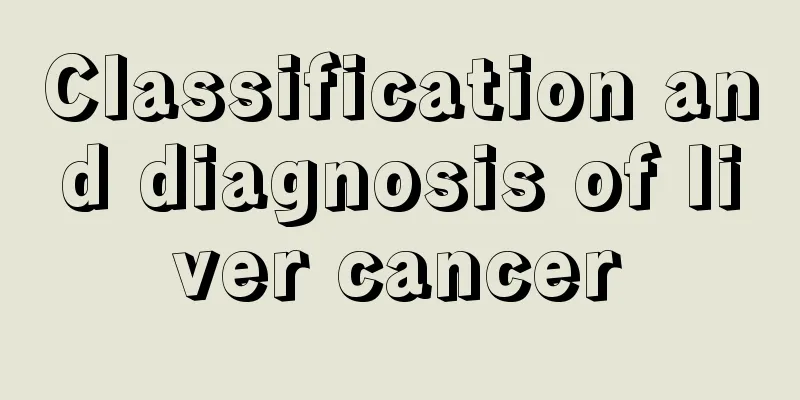Stomach bloating and pain after eating

|
The fast-paced life has caused many young people to be under great pressure in their daily lives. Bad habits such as often going to bed late and going to bed early, irregular eating habits, overeating, etc. can easily lead to stomach diseases. Many people experience abdominal bloating and pain after meals. Usually, if this symptom occurs in the body, especially if it happens frequently, it is best to go to the hospital for relevant examinations. What causes stomach bloating and pain after eating? It is most likely caused by gastrointestinal dysfunction or indigestion. It is best to go to the hospital and take medication under the guidance of a doctor, and avoid spicy, irritating, and raw or cold foods. These symptoms in the body indicate indigestion 1. Abdominal bloating The first symptom of indigestion is "abdominal bloating". The food fills up the stomach and cannot move down. When you touch the stomach with your hand, you feel that there is gas or hard objects in the stomach. This is your sign that your stomach is full and you can't eat any more! 2. Vomiting, acid reflux and hiccups If the food is packed full and there is no time for digestion to flow towards the intestines, when it is bloated to a certain extent, it will rush upwards and cause vomiting of food residues. Hiccups and acid reflux are caused by food remaining in the stomach for too long, producing sour gas. 3. Constipation and diarrhea Indigestion can easily cause gastrointestinal flora imbalance, thus causing diarrhea. If food stays in the gastrointestinal tract for a long time, it will form toxins and stool, causing gastrointestinal dysfunction and eventually leading to constipation. If you experience symptoms such as early satiety (feeling full shortly after eating, resulting in a significant decrease in food intake), difficulty swallowing, upper abdominal pain, vomiting blood, black stools, etc., you need to suspect that the indigestion is already quite serious and it is best to seek medical treatment immediately. Five tips to help you digest quickly 1. Take a walk after dinner. Walking half an hour after a meal can effectively promote gastrointestinal motility and accelerate the digestion and absorption of food in the stomach. 2. Drink wine in moderation. The acidity of wine can stimulate the stomach and promote the secretion of digestive juices. 3. Drinking honey and lemon tea can promote gastrointestinal motility, accelerate the digestion of food, and play a role in appetizing and digesting food. 4. Self-massage. Massage the Zhongwan point 300 times in a clockwise direction; press the Zhongwan point until you can hear a slight peristaltic sound in the stomach. |
<<: Is anal fistula surgery a major operation?
>>: Headache when sleeping at night
Recommend
Will having sex three days before ovulation result in a girl?
As we all know, if a woman has sex during her ovu...
Five major parts of the body are prone to air-conditioning diseases
Lesser Heat and Greater Heat are the hottest peri...
Hallux valgus correction
The condition of hallux valgus is mainly caused b...
Will eyesight stabilize after 18 years old
Vision is a very important visual health conditio...
Dosage of Chinese date kernel for treating insomnia
Nowadays, people are in a high-pressure working e...
Complications and treatment methods caused by radiotherapy and chemotherapy in the treatment of nasopharyngeal carcinoma
The treatment of nasopharyngeal carcinoma often a...
I woke up in the middle of the night and couldn't fall asleep again_I often wake up in the middle of the night recently
During the day, after a busy day of work or study...
Women can prevent laryngeal cancer by drinking more tea
Women who drink more tea can prevent laryngeal ca...
Can washed eggs be put in the refrigerator?
We often find some dirt on the eggs we buy, so we...
Acupuncture and electroacupuncture combined therapy for paraplegics with bone cancer
If the bone tumor occurs in the thoracic spine an...
What to do if you have bad breath for a long time
The problem of bad breath has a great impact on p...
What to do if your scalp is itchy
What should you do if you have an itchy scalp? I ...
What are the causes of kidney disease?
The kidney is a very important organ in the human...
What are the complications after maxillary cancer surgery
What are the complications after maxillary cancer...
Symptoms of foot neuralgia
The nerves of the foot joints are the more import...









